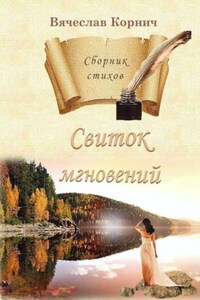Chapter 1
On 15 June 1940 a celebration took place on the small Platz, the square, in Germau in front of Karl’s parents’ shop. The previous evening’s radio broadcast had carried news of victory in Paris. The villagers nervously set up their goods to sell, hopeful that victory would quickly translate to peace. Early that morning Ida had asked her father, Günter, who had walked over from his village, to slaughter one of the few remaining pigs for the party. He wasn’t much good at butchering, but she couldn’t worry about that today: she was preoccupied with thoughts of her absent husband.
She knew Paul was safe on the outskirts of Paris where he had been sent to ensure a steady supply of food for the troops. When he had received his call-up papers he had closed their butchery because Ida hadn’t the strength or the skill to run the slaughterhouse, and the children – Karl, Peter and Leyna – were too young to train. No one in the village, including Paul, had thought it a matter for concern; everyone was certain that the war would be short and the soldiers would return as heroes. The decisive victory in Paris seemed to confirm that Paul would soon be home, she thought, as she sat on the front steps of the shop, which was also their home. Adults had gathered round the linden tree, encircled by an ornate iron railing that stood in the centre of the village square. A group of children were playing hide and seek near the trees surrounding the village, oblivious to their parents’ worries.
Suddenly Karl, her oldest, appeared from the group, sprinting towards her. He came through the gate that separated the shop from the square and sat down, panting, beside her. When he could speak, it was to ask again the question he had repeated since last evening’s broadcast: ‘When is Father coming home?’
At first she looked at him without speaking; then she said, ‘Come here.’ She wiped a smudge of dirt from his cheek with her apron. ‘I told you to stop asking.’
‘But Werner says he’s dead.’
Ida looked out at her neighbour’s son chasing Leyna through the trees. She could hear them giggling. ‘Tell Werner I’ll spank him myself if he says that again.’
‘When do we eat?’
‘Soon. Go and look after your little sister.’
Karl jumped up and ran back through the gate. As he crossed the square he stumbled on a loose cobble, then continued, darting through a group of adults. He ignored his sister and ran up the path to the church that stood at the top of a hill to see if he could spot Peter, his younger brother.
The village where Ida’s father lived, Sorgenau, was a few kilometres west of Germau, close to the amber town of Palmnicken. Günter had moved there with his Lithuanian bride shortly after Ida’s mother had died of cancer two years earlier. The roads that led to Germau dated from as far back as the Bronze Age, when the indigenous Balt-Prussians had traded their only precious resource, amber, with the outside world in exchange for metal to use in jewellery, tools and weapons. For centuries the region had remained so remote that although Tacitus and Ptolemy had mentioned it in their writings, Pliny the Elder referred mistakenly to the Samland peninsula as an island: Amber Island. Like the shards of amber that washed up daily on the local beaches, there were other bits and pieces of rarely mentioned history that marked the region: on conquering Samland seven centuries earlier the Teutonic Knights had stolen the non-Germanic tribe’s name and used it to christen their own empire. Prussia rose as one of the most militant and chauvinistic of all German states, despite the fact that many of the assimilated Baltic Prussians, including Ida’s clan, silently traced their names and lineage to a pre-Germanic past. But on that summer afternoon in 1940, no one was thinking about the village’s history as they gathered on the Platz to sing, laugh, drink, dance and make merry in honour of the news they had heard on the radio.
Ida, though, wasn’t quite ready to join the party and remained apart, nervously fingering her bracelet as she watched Karl reach the ancient church the Knights had built above the village.








